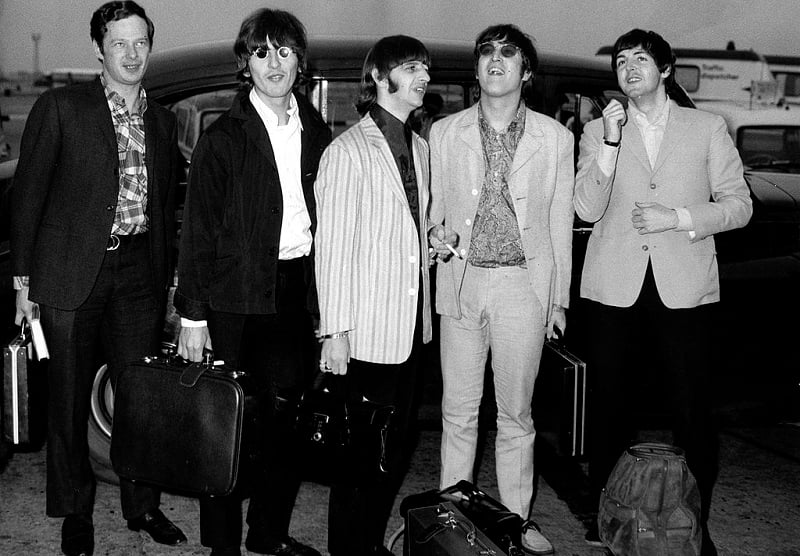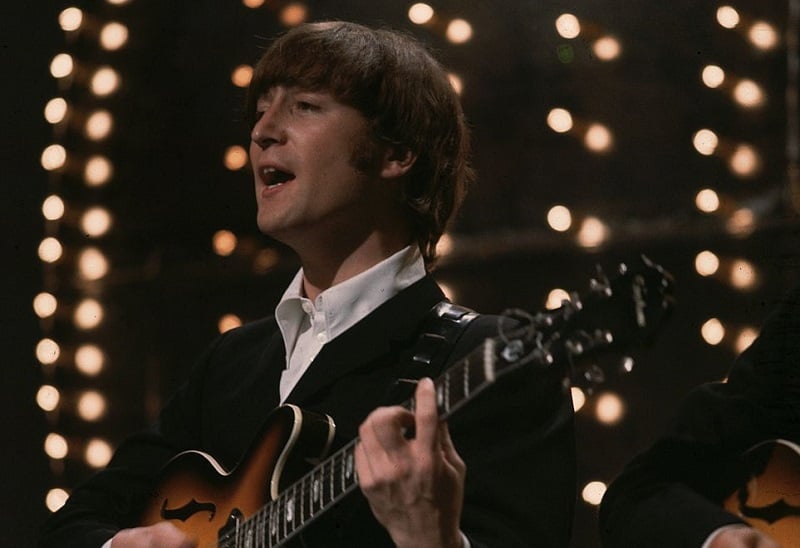The First Time John Lennon Saw the End of The Beatles Coming
You can point to any number of things that split up The Beatles by 1970. Obviously, the differences between John Lennon and Paul McCartney had become too numerous to ignore. When John and Paul nearly fought during The White Album (1968) sessions, you knew the troubles were serious.
The same could also be said for another day in ’68 when Ringo walked out on the band and left the country. Or the moment early the following year when George Harrison quit the group and decided to focus on his own music.

John Lennon saw the end of The Beatles coming
In brief, The Beatles were frequently a mess during their final years together. But somehow, the band stuck it out together and cut the tracks for those beloved final records (including Abbey Road and Let It Be).
Going by what John Lennon said after the breakup, the trouble began shortly after the band lost manager Brian Epstein in August 1967. From that point on, he could see the end coming.
After Epstein’s death, John said The Beatles ‘collapsed’ and ‘broke up then.’
Epstein died of an accidental drug overdose (sleeping pills) in his home in London. At the time, the band members were visiting Wales to attend lectures by the influential Maharishi. In his 1970 Rolling Stone interview, Lennon remembered being shook by the news that day.
Though the Maharishi urged the Fab Four to think positive thoughts about their late manager and friend, Lennon couldn’t follow the advice. “I was stunned,” he told Jann Wenner.”I don’t know whether you’ve had it, but I’ve had a lot of people die around me and the other feeling is, ‘What can I do?'”
From a professional standpoint, the band lost the man who took them from nothing in Liverpool to the heights of the entertainment industry. “I knew that we were in trouble then,” John said. “I didn’t’ really have any misconceptions about our ability to do anything other than play music.”
In fact, it became the equivalent of a death knell for John. “I was scared. I thought, ‘We’ve fu*ckin’ had it.'” After The White Album, he’d become certain. “We broke up then,” John said of Epstein’s death.
Epstein’s passing created a power vacuum The Beatles never filled.

With Epstein gone and no immediate replacement, it also meant someone in the group would have to take control of the situation. Paul McCartney assumed most of these duties. In John’s mind, that accelerated the end of the group.
“Paul took over and supposedly led us,” Lennon told Rolling Stone. “But what is leading us, when we went round in circles? That was the disintegration.” He described The White Album as a bunch of songwriters who used the other Beatles as a backing band.
Epstein could no longer smooth over the rough edges or encourage them to collaborate. And he couldn’t ask producer George Martin or sound engineer Geoff Emerick to help avoid near-violent disputes like Paul and John had while recording “Ob-La-Di, Ob-La-da.”
Within two years of Epstein’s passing, John told his bandmates he was leaving. Paul followed in April 1970. It had become time to try their luck as solo artists.
Check out The Cheat Sheet on Facebook!


